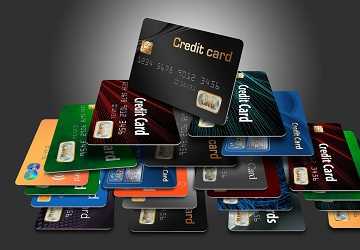How to Choose the Best Credit Card for Your Financial Needs
It becomes a daunting task when choosing the right credit card for your financial needs. It will not only affect your economic well-being, but you will be able to manage your earnings and savings well. Now numerous credit card options are available, making navigating the sea of features overwhelming. If you understand your financial goals well, you can compare different credit cards based on important factors and choose the right one for you.
When it comes to credit cards, one size does not fit all. Your ideal credit card must be aligned with your spending habits, financial goals, personal preferences, and credit score. It is essential to evaluate every aspect before you make the purchase.
Here we will explore comparing various credit cards and selecting the best one by considering fee structure, rewards programs, and additional perks. Look for tips for first-time credit card applicants. This way, you will maximize the benefit and make intelligent financial decisions.
Comparing different credit cards
When comparing different credit cards, looking for fundamental vital factors is essential to find the best one. The card must align with your financial goals, so look for the following aspects when you evaluate.

1.The first task is to check the fees you need to give, which are associated with each credit card you have. Do consider the annual charges, balance transfer fees, any late payment fees, cash advances, and fees for international transactions. Consider the benefits and rewards and justify your choice. For example, a card with an annual fee might work for you if perks are attached.
2.Then go for interest rates. Compare the annual percentage rates of each card and go for lower interest rates as they are more favorable. Go for competitive APRs, as they will benefit more.
3.All credit card companies offer rewards in one way or another, so explore them thoroughly. Some cards have cash back on purchases, while others may provide points you can redeem while merchandising or traveling. Remember to match the spending pattern with the rewards you get with the credit cards, especially in the purchase section. By doing so, you can make the most of the tips and benefits the credit card provides.
4.Remember to look beyond rewards. Do consider additional benefits offered by credit card companies. It can include purchase protection, travel insurance, extended warranties, airport lounge access, concierge services, etc. See which perks are more valuable to you and select the card accordingly.
5.Credit card limits are fundamental, so take note wisely. If you have a limited credit history, start with a card with a lower credit score. You can always go for a credit card with offers attached to it, such as educational resources and a tracking tool to improve your credit scores. These resources may include educational materials on credit and tools to track your credit score.
6.Finally, research feedback and customer reviews. It will give you a deep insight as a customer about reliability, customer service, and satisfaction criteria. Always purchase a card with maximum positive reviews.
How to choose the best credit card
Follow the given steps to carefully evaluate and consider before choosing a credit card for yourself.

1.First, start by assessing your financial goals. Understand why you need a credit card. Do you want to build credit or earn rewards? Are you looking to consolidate debts, finance large purchases, or enter the privileged group? Clarifying the goals will help you narrow down the most important options and features.
2.Next is to evaluate your spending habits. It would be best to analyze your typical expenses and spending patterns. Look at the categories where you tend to spend more, for example, eating at restaurants or traveling. Narrowing down the options will determine which credit card is best for you to get rewards and benefits in the criteria you choose. For example, you can collect airline miles or rewards as a start.
3.Remember your credit score. It plays a crucial role in determining the type of credit card you qualify for. If you have a clean history, you can get a secured credit card or an entry-level credit card which is best for individuals with less credit. Keeping the same pattern, you can earn rewards and perks, adding benefits to your score.
4.You must explore various credit cards along with their features first. Compare interest rates, rewards, fees, and perks. Then look for competitive interest rates, minimum annual fees, and transparent fee structure, which is necessary. Access everything so that it aligns with your spending programs. You can also alter the categories according to your preferences.
5.Almost all credit card companies offer introductory offers such as no charge on the first few transfers or APR purchases. If you plan to make large purchases or transfer a considerable amount, go for cards with introductory offers. But be aware of the terms and conditions because the rates and duration may differ and change from time to time.
6.Before you finalize the purchase, check out the customer reviews and ratings for the credit cards. See websites, forums, and other social media platforms to get an insight into the services provided by credit card companies. All this information will help you gauge the reliability of the card issuer.
7.If you are happy with the available information, make the purchase. But if you are unsure, it is better to get professional advice. Talk to a financial advisor at your bank or credit union. Personalized guidance will clear the way toward better financial goals and getting the best credit card.
A sound credit card is as important as maintaining a healthy financial profile. You must pay bills on time and keep credit utilization low. Besides this, avoid carrying a balance if you can.
Remember, selecting the best credit card means you are responsible for expenditures too. With perfect usage, you can unlock many features, such as rewards, benefits, and opportunities to support your overall well-being.